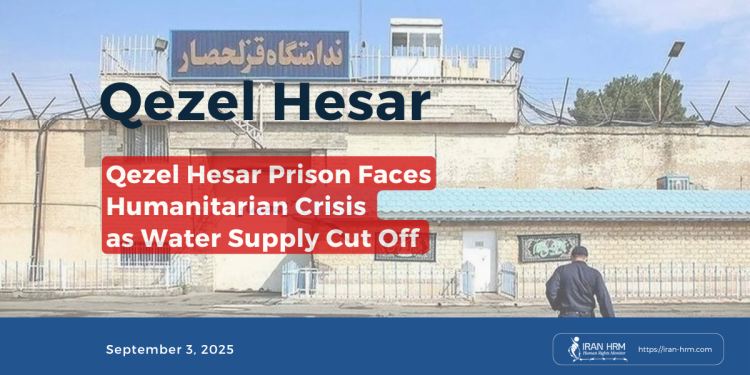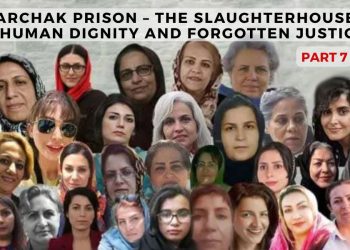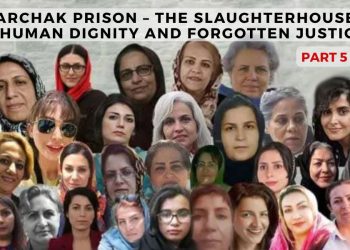According to informed sources, the water supply to Qezel Hesar Prison in Karaj, particularly in Unit 2, has been completely cut off since Tuesday, September 2, 2025, at 3 PM. This drastic measure, which prisoners are describing as “silent torture,” has created severely critical and inhumane conditions for hundreds of inmates, placing their health in grave jeopardy.
Qezel Hesar Prison: A “Death Factory,” a City of 17,000 in Chains
Qezel Hesar, often referred to as a “death factory” or a “city with 17,000 residents in chains,” is already notorious for its dire conditions. The sudden and complete cessation of water has now escalated into a full-blown humanitarian crisis.
Water Cut Leads to Human Crisis
Based on information received, the abrupt cut-off affects not only the main water system but also the prison’s tanker supply, depriving prisoners of the most basic necessities for survival. Since Tuesday, inmates have been unable to shower, wash their hands, clean dishes, or use sanitary facilities normally. In these conditions, the only source of water for hundreds of prisoners is bottled mineral water, which is offered in limited quantities and at exorbitant prices in the prison’s commissary.
One inmate, in a brief contact, stated: “This situation is unbearable. We cannot maintain personal hygiene, wash our hands, or even use the toilets normally. This is nothing short of silent torture.”
Added Financial Pressure on Prisoners
While many prisoners already grapple with severe economic hardship, being forced to purchase bottled water places additional financial strain on them. Each bottle of mineral water costs 16,000 Tomans in the prison store – an amount considered unaffordable for impoverished prisoners and their families. Inmates emphasize that even if they could afford it, mineral water is insufficient for proper washing and hygiene, and such a method will only lead to increased tension, conflict, and disease within the wards.
Health Consequences and Risk of Disease Outbreaks
Health experts assert that cutting off water in overcrowded prisons like Qezel Hesar, with its high inmate population, can lead to the rapid spread of infectious, skin, and gastrointestinal diseases. The inability to wash hands and dishes, especially in crowded environments, creates ideal conditions for disease transmission that could even result in dangerous epidemics. This situation, in addition to threatening the physical health of prisoners, also inflicts significant psychological pressure.
An informed source warned: “In crowded wards, if water is cut off for even a few hours, life is practically paralyzed. Now that the complete water cut has continued for several days, the risk of disease outbreak is extremely high, and the lives of hundreds of prisoners are in grave danger.”
“Silent Torture”: A Tool for Prisoner Suppression
The water cut in Qezel Hesar Prison is not merely a simple technical or administrative problem; prisoners widely perceive it as a “method of suppression” and “silent torture.” Given that access to water is one of the most fundamental human rights, depriving prisoners of this basic right constitutes a form of systematic torture, aimed at intensifying psychological and physical pressure on them. This deliberate deprivation of essential services underscores the Iranian authorities’ blatant disregard for the well-being and fundamental rights of those in their custody. Human rights organizations and international bodies are urged to immediately intervene, investigate these inhumane conditions, and demand that the Iranian regime restore full water access and uphold its obligations under international human rights law.







